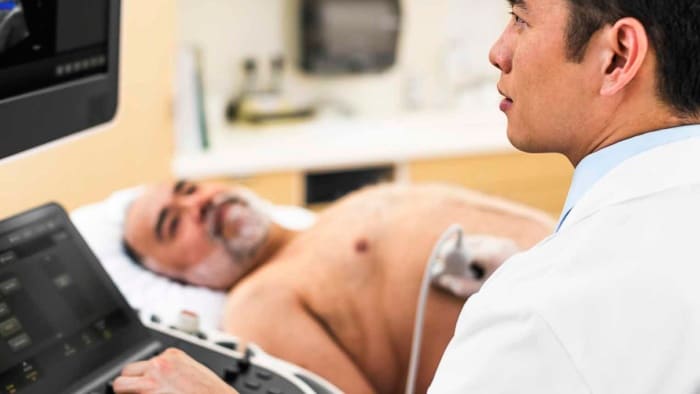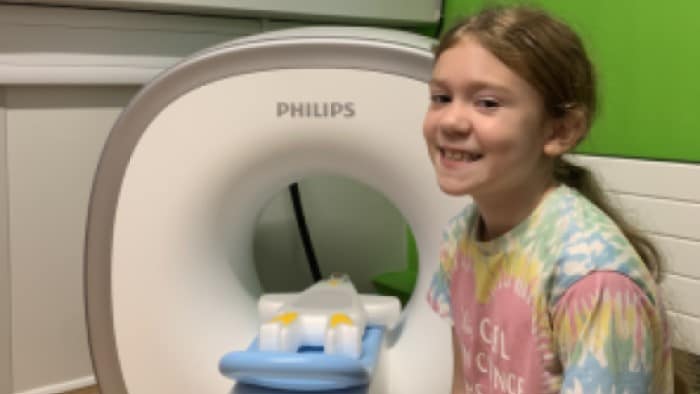Nov 24, 2020
Rapid acceleration of community diagnostics urgently required to alleviate pressures on the NHS, findings by researchers from Imperial College London and Philips UKI reveals
● Innovative models of care and rapid development of Community Diagnostic Hubs, proposed by the Richards Report, will be vital for helping the NHS to tackle healthcare inequalities. ● COVID-19 has placed an unprecedented strain on NHS resources, exacerbating the pressure on referrals, diagnostic and surgical procedures. ● However, there is optimism for progress, with the pandemic accelerating the use of digital technologies, particularly in remote diagnosis and telemedicine, by several years. ● Philips UK launches its ‘Reducing Healthcare Inequality and Enhancing the NHS’ research paper with recommended actions that could improve the health of the nation, reduce inequalities and enhance the NHS.
[LONDON, November 17, 2020] – New research, revealed today, details the extent of health and social inequalities in the UK, alongside the unprecedented challenges the National Health Service (NHS) faces in delivering care during the COVID-19 pandemic and beyond. The findings highlight the need for the rapid development of Community Diagnostic Hubs (CDHs), previously proposed by the Richards Report ‘Diagnostics: Recovery and Renewal’[i] as a vital solution for tackling healthcare inequalities and alleviating pressures on the current healthcare system. Today’s new report, ‘Reducing Healthcare Inequality and Enhancing the NHS’, by researchers from Imperial College London, working independently via Imperial Consultants, in partnership with leading health technology company Philips UK, indicates that the COVID-19 pandemic has emphasised existing healthcare inequalities and that the virus may disproportionally affect people living in the most deprived areas of the UK. The report suggests recommendations for embracing new approaches to help address these disparities. Commissioned to develop a clear evidence base on healthcare inequalities across the UK, the new report also outlines the impact of the pandemic on the UK’s health system. Findings emphasise the effects of COVID-19 on health service capacity, and suggests if change is not supported the subsequent impact on the ability of the NHS to diagnose and treat disease will persist for many years. Even factoring in news of a breakthrough COVID-19 vaccine which, once approved by regulators will take months or years to fully roll out, protecting the NHS still requires rethinking patient pathways and introducing new resources. This will be essential for reducing the backlog of diagnosis and treatments that the NHS and healthcare professionals so urgently want to clear. Community diagnosis will be vital to protecting the NHS Findings from Imperial’s researchers underscores the pressures the NHS is facing in managing rapidly growing patient demand with finite resources. In 2019, waiting times for diagnostics, consultant-led treatment and cancer treatment were all at record high levels, even in a pre-pandemic environment.
Immediate steps should therefore be taken to support the NHS in re-introducing non-COVID-19 services whilst also caring for COVID-19 patients. This includes shifting diagnostic and treatment services from secondary care to settings closer to patients’ homes. Doing so will help prepare for an anticipated surge in demand for diagnostic services over the next five years, particularly as the potential for acute hospital site expansion is very limited. It is for these reasons that the proposal for rapid development of Community Diagnostic Hubs is a welcome step forward in accelerating pathways in areas of highest deprivation. The creation of CDHs will tackle the issue of healthcare inequalities by embedding diagnostic capabilities deeper into the community. This will enable the ability to discover and treat health issues more rapidly, ultimately improving quality of life for people living in the UK. CDHs will also enable illnesses to be treated in a non-COVID-19 environment, further easing the burden on the NHS. However, Philips UK believe that CDH’s cannot be developed in isolation. Helping communities to address their health will require a collaborative effort from industry, government and healthcare practitioners in order to encourage genuine interaction and engagement with the centres.
Strain on GP practices intensifies in most deprived regions of the UK Primary care – the day-to-day healthcare available in local areas and the first place people go when they need health advice or treatment, such as GPs – is where investigations and interventions to address health issues is often coordinated. The report findings show that the rate of GP consultations per patient living in the most deprived areas is 18% higher than those living in the least deprived, while an individual aged 50 in the most deprived group consults their GP, on average, at the same rate as someone aged 70 in the least deprived. Patients living in deprived areas are more likely to have GP appointments and these appointments are likely to be more complicated. This is due to an increase in the number of patients in these communities with longer-term health conditions, placing a greater strain on primary care networks. The COVID-19 pandemic has further intensified the challenges faced by GPs in the most deprived regions. Prior to the pandemic, patients living in these areas had less access to vital digital health services needed, such as telemedicine, which may further exacerbate healthcare inequalities. Digital technology will be vital to level the playing field The report further highlights how the NHS has recognised the need to make rapid changes to service delivery and care pathways as a result of the COVID-19 pandemic. Many of these changes have required the enhanced use of digital technologies, hastening the digital transformation of healthcare – one of the key pillars of the NHS Long Term Plan. In many instances, the pandemic has demonstrated that a large part of care - from electronic health records, telemedicine, diagnostics, remote monitoring and care devices, to pathology, AI and predictive analytics – can and should be provided digitally. However, the pandemic has also exposed an urgent requirement to optimise data infrastructure in the UK and highlighted room for improvement in data sharing processes between healthcare providers and settings. Although almost all GP clinics in the UK are using electronic health records, Imperial College's researchers have found that some hospital trusts are still using paper records, which is a barrier to the efficient sharing of health data. This use of paper records in hospital trusts represents an additional burden for patients that move between these hospitals and their GP.
“The COVID-19 pandemic has added additional strains on the health and social care system and exacerbated the challenges faced by deprived communities. Environmental issues, such as poor housing, air pollution and climate change, place additional burdens on vulnerable groups during and beyond the COVID-19 pandemic – and it’s vital we take the steps needed now to address these. Solutions require investment in health, not just healthcare. With patients, providers, government, industry and other stakeholders committed to change, we can work towards enhancing the NHS and improving people’s lives.
Imperial’s Dr Leigh Warren
Philips UK firmly believes that introducing advances in medical technologies – both through the delivery of diagnostic services and targeted therapies - presents an essential opportunity to support the 66 million people in the UK to live longer, healthier lives. As such, in tandem with the findings released today, Philips UK has unveiled its ‘Reducing Healthcare Inequality and Enhancing the NHS’ report, with recommended actions that could improve the health of the nation, reduce inequalities and enhance the NHS. Neil Mesher, Philips UKI CEO said of the report: “Our research has shown that in the UK, people living in more deprived areas have lower life expectancy, live fewer years of healthy life and suffer from more long-term health conditions than people living in other areas of the country. The Government, NHS and its partners must work collaboratively to combat these inequalities across our nation. Its clear changes to the way primary care is delivered at the community level are essential, and broadening access to diagnostic services through CDHs - as recommended by the Richards Report - will be vital. Equally important is ensuring that people in deprived communities will engage. It is only through population uptake of new pathways to care that we will ultimately be able to ease the burden on the NHS and reduce healthcare inequalities. I am delighted that Philips has launched our findings today, which includes recommended actions to help provide quality healthcare for everyone and protect the NHS.” The key recommendations in the report include: ● Expand rapid access pathways available to patients to significantly reduce patient diagnosis time ● Expand diagnostic capacity through Community Diagnostic Hubs ● Extend the capacity of radiology and pathology hubs to streamline and bolster patient care ● Increase research and investment into the role of Artificial Intelligence (AI) in our healthcare system to increase efficiencies ● Invest in greater data integration to deliver better co-ordinated patient care ● Capitalise on opportunities to advance digital transformation at the primary care level to greater support patients ● Develop new methods of partnerships between industry and the NHS to improve patient outcomes Download the ‘Reducing Healthcare Inequality and Enhancing the NHS’ report [https://images.philips.com/is/content/PhilipsConsumer/Campaigns/CA20162504_Philips_Newscenter/CA20162504_Philips_Newscenter-en_GB-AAA-5228_uk_healthcare_inequalities_research_report.pdf]. You can find out more about Philips recommendations for driving lasting change [https://images.philips.com/is/content/PhilipsConsumer/Campaigns/CA20162504_Philips_Newscenter/CA20162504_Philips_Newscenter-en_AA-AAA-reducing_healthcare_inequalities_philips_recommendations.pdf].
Notes to editors Some additional key themes highlighted in the research include: ● Imaging: Given the urgent need to optimise imaging services to ensure patient have access to them, undersupply of imaging services indicates the need for investment in long-term solutions. ● Coastal: Nearly a third of neighbourhoods in English seaside destinations are amongst the most deprived areas in the country for health deprivation and disability. ● Tech: Remote monitoring using wearable sensors also open opportunities to expand more care into the home setting and reduce demand on much-needed NHS hospital beds. ● Air Pollution: On average, air pollution is worse in areas of higher deprivation in the UK, making those living in these areas more susceptible to the health impacts caused by poor air. Similarly, many of the most deprived hospital trust catchment areas are associated with worse air quality. ‘Reducing Healthcare Inequalities and Enhancing the NHS’ methodology In this report, several statistical analyses address questions related to health inequalities in the UK. The data used in these analyses are drawn from a number of different sources, including the 2019 Indices of Multiple Deprivation and most the recently available NHS statistical publications. A full description of the data sources and methods used in these analyses are available in the supplementary methods report here.
For further information, please contact: Matt Palutikof
One Voice Connect
Tel.: +44 7970 426542
Email: matt.palutikof@Ketchum.com

Dominique Monaghan
UKI Communications and PR Manager
You are about to visit a Philips global content page
ContinueAbout Royal Philips
Royal Philips (NYSE: PHG, AEX: PHIA) is a leading health technology company, focused on improving people’s health and enabling better outcomes across the health continuum from healthy living and prevention to diagnosis, treatment and home care. Philips leverages advanced technology and deep clinical and consumer insights to deliver integrated solutions. Headquartered in the Netherlands, the company is a leader in diagnosis imaging, image-guided therapy, patient monitoring and health informatics, as well as in consumer health and home care. Philips’ health technology portfolio generated in 2016 sales of EUR 19.5 billion and employs approximately 81,000 employees with sales and services in more than 100 countries. News from Philips is located at www.philips.com/newscenter
Topics
Contact Details
Matt Palutikof One Voice Connect
Tel.: +44 7970 426542
Email: matt.palutikof@Ketchum.com

Dominique Monaghan
UKI Communications and PR Manager
You are about to visit a Philips global content page
Continue









